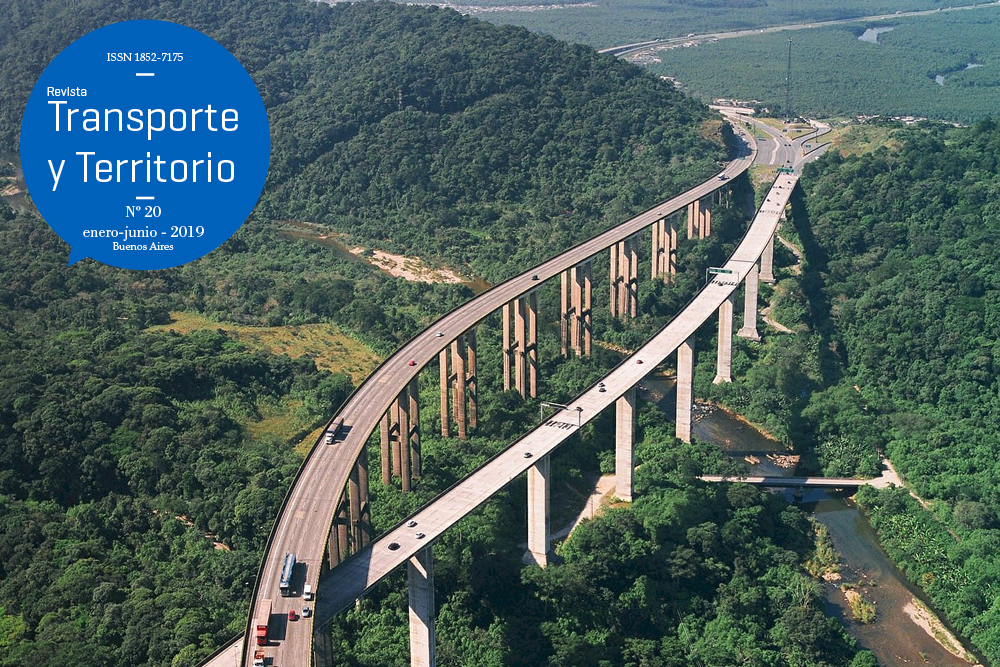The Cabotage in Brazil: a geographical analysis of modal conjuncture at the beginning of the 21st century
Keywords:
circulation, fixed, flows, maritime transportation, cabotage
Abstract
Circulation is one of the elements intrinsic to productive processes and is established as one of the premises of the current period oriented by the globalized capitalist rationality. In this sense, every modality of transportation becomes an imperative component of contemporaneity. This article aims at analyzing some points of the current situation of cabotage in Brazil, a maritime modal of transportation, which can be understood as an object that constitutes the dynamics of circulation of the material flows in the country. This analysis aims to expand the understanding of the relations between use, regulation and organization of the territory contemplating: the role of circulation and its importance in structuring the territory, the recent state actions for this modality of transport, the contemporary statistics on the circulation of goods by cabotage, the main fixed, flows and space circuits of the production that uses the modal, as well as the main Brazilian company that operates in cabotage today. Finally, some final considerations suggest that cabotage could be expanded to benefit from the physical characteristics of the national territory, especially by the fact that Brazil has an immense coastline that is linked to a predominantly coastal population.Downloads
Download data is not yet available.
Published
2019-04-01
How to Cite
Oliveira Fonseca, R. (2019). The Cabotage in Brazil: a geographical analysis of modal conjuncture at the beginning of the 21st century. Revista Transporte Y Territorio, (20), 6-32. https://doi.org/10.34096/rtt.i20.6382
Section
Dossier

1.jpg)

3.png)























